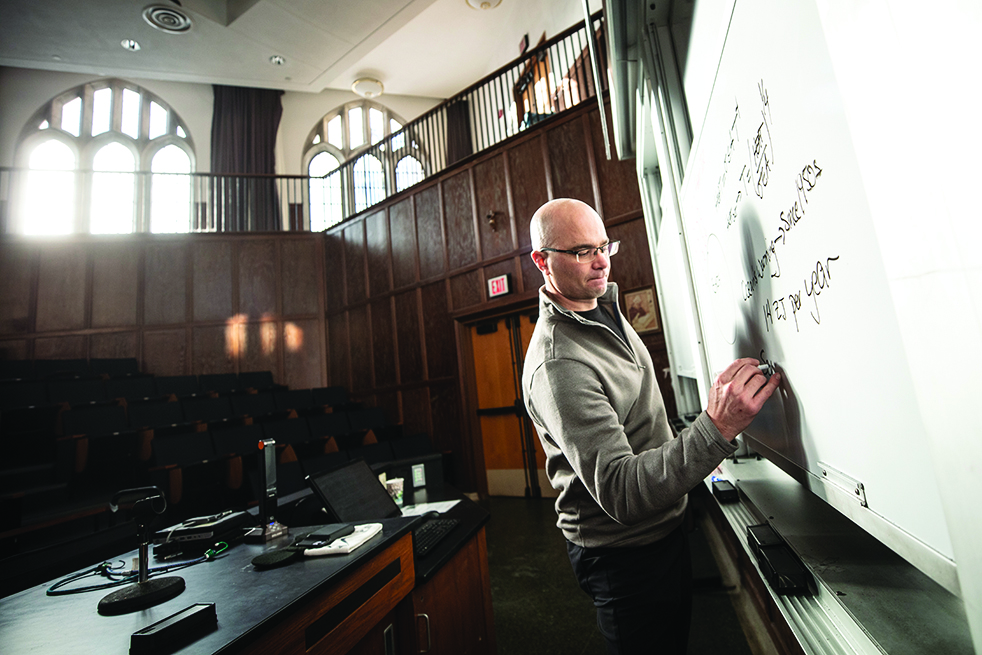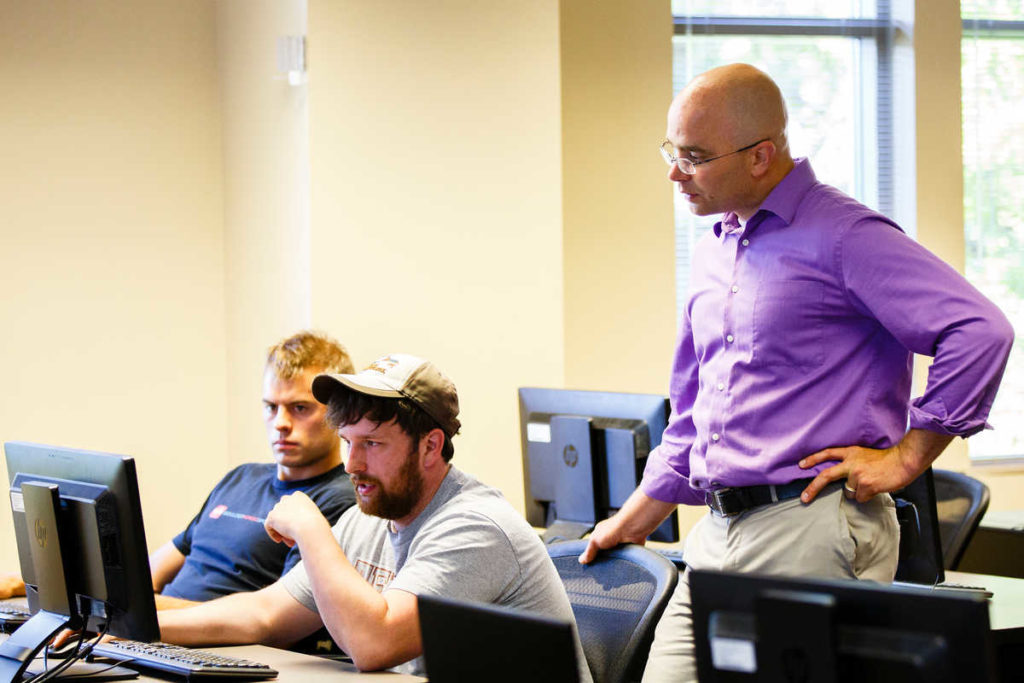
Elise Amel
Working with Cities to Advance the Common Good:
The St. Thomas Sustainable Communities Partnership
Breathable air, drinkable water, and healthy food—the essentials for life. Energy use, fuel emissions, consumption, and waste—ways we impact our planetary home.
Cities and towns around the world are working to meet the challenges of sustaining resources and eliminating negative environmental impacts in order to maximize the quality of life for their residents and visitors. Obstacles to this work often include the rules, regulations, and infrastructure that communities have built as a culture over time under different environmental constraints. For instance, some communities are working to redesign transportation infrastructure to increase commuting options, such as safer bike routes, mass transit, and car sharing programs. Other communities are reexamining regulations about vegetation height on front lawns and grass-only boulevards so that residents can plant edible gardens in their front yards. Still other communities are working to improve water quality, tackle energy issues, strengthen local food systems, and more. As communities identify sustainability goals to improve quality of life, they often run up against limited resources to investigate and solve these emerging issues. This is why partnering with municipalities on their self-identified goals to redesign neighborhoods, rethink common spaces, reduce impacts, and increase environmental quality is an essential lever for addressing sustainability. It is a way to make a substantial impact in a relatively short amount of time.
In order to address sustainability at this systems level and provide students with real-world applications of their course material, the Center for Global and Local Engagement’s Office of Sustainability Initiatives is launching the St. Thomas Sustainable Communities Partnership. The St. Thomas Sustainable Communities Partnership is a strategic initiative based on a model introduced by the University of Oregon called the Sustainable City Year Program (SCYP). The SCYP is a “catalytic learning model that leverages existing courses to work on applied community projects identified by community stakeholders (i.e. city, county, school, or transit district) over an entire academic year” (https://sci.uoregon.edu/scyp-model).
The goal of each year-long, collaborative partnership is to advance the quality of life and sustainability goals identified by a community in our region. This innovative educational experience provides a combination of geographic focus, high-impact scale, multi-disciplinary and interdisciplinary inquiry, defined time-frame, and community-university collaboration focused on sustainability. This approach also provides a wide range of benefits for students, faculty, universities, and communities.
Both the SCYP and St. Thomas faculty have a proven track record of success with this model. Specifically, the Oregon SCYP won an Ashoka-U Cordes Innovation Award in 2015. As well, eight St. Thomas faculty, eleven St. Thomas courses, and over 100 St. Thomas undergraduate students have already engaged in a SCYP program, the ACTC CityLabs pilot (https://actc-mn.org/programs/citylabs/about-citylabs/). The ACTC CityLabs pilot earned a Sustainable St. Paul Award for best sustainable partnership with the city in 2014.
We believe the St. Thomas Sustainable Communities Partnership can contribute significantly to the advancement of the common good. We envision collaborative partnerships among existing St. Thomas courses and regional communities, both rural and urban. To implement this vision, we will strategically partner with alumni and existing organizations working with rural and urban communities within sixty miles of St. Thomas. The partnership’s geographic focus and scale as well as the identification of project ideas by the communities themselves enable the collaborative projects to have a meaningful impact on communities. For St. Thomas students, these engaged learning experiences promote multidisciplinary and cross-campus interdisciplinary inquiry contextualized in local community and help develop entrepreneurial and creative problem solvers while fostering transferrable skills. The culmination of students’ work includes deliverables such as public presentations, prototypes, and policy recommendations to the community.
We believe the St. Thomas Sustainable Communities Partnership will advance the strategic priorities of Catholic-Inspired Community Engagement, Excellence in Learning and Student Engagement, and One University. This program is also consistent with the St. Thomas mission of advancing the Common Good and its vision of preparing students for the complexities of the contemporary world. This initiative is also consistent with our current Carnegie Community Engagement Classification and our aspirations to become an Ashoka Changemaker Campus.
Elise Amel will serve as the director of the program, housed in the Center for Global and Local Engagement, and Maria Dahmus will serve as program manager. Please join us in this endeavor by contacting Elise (elamel@stthomas.edu) or Maria (medahmus@stthomas.edu).
“COMPANION” is a newsletter of the Center for Local and Global Engagement. Subscribe here.






